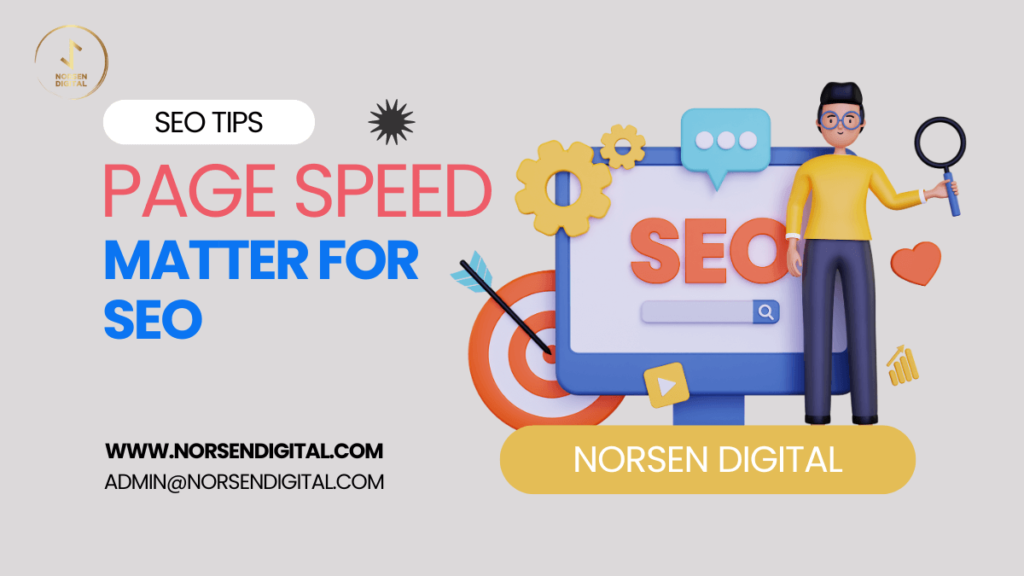In today’s digital landscape, page speed plays a crucial role in determining a website’s success. Google’s algorithms continue to evolve, but one constant remains: fast-loading websites rank higher on search engines. For businesses aiming to improve their online presence, optimizing page speed is no longer optional—it’s essential for SEO.
1. What is Page Speed?
Page speed refers to how quickly a web page loads its content. Factors like server response time, image size, and script loading all influence page speed. Google and other search engines use this metric as a ranking factor because it directly affects user experience.
2. How Page Speed Impacts SEO
A slow website can frustrate users, leading to higher bounce rates and lower engagement. Search engines like Google consider these signals when ranking websites. Here’s how improving page speed benefits your SEO:
- Higher Search Rankings: Fast-loading websites are more likely to rank higher on Google SERPs (Search Engine Results Pages). Since page speed became an official ranking factor in 2018, its importance has only grown.
- Improved User Experience: A site that loads quickly creates a seamless user experience, increasing the likelihood of visitors staying longer and exploring more content.
- Lower Bounce Rates: Slow websites drive users away, often before they can even interact with the content. Faster pages keep users engaged, reducing bounce rates and increasing session durations.
3. Mobile Optimization and Page Speed
In 2024, mobile-first indexing means Google predominantly uses the mobile version of a website for ranking and indexing. Ensuring your website is optimized for mobile speed is crucial, especially in a market like Canada, where mobile internet usage is skyrocketing. Slow-loading mobile sites can lose visibility quickly.
4. How to Improve Page Speed for SEO
Improving page speed isn’t just about cutting a few seconds off your load time. It requires a strategic approach:
- Optimize Images: Compress images without sacrificing quality to reduce load times.
- Leverage Browser Caching: This allows returning visitors to load pages faster by storing certain files locally.
- Minimize HTTP Requests: The fewer elements a browser has to load (like CSS, JavaScript, and images), the faster your page will load.
- Use a Content Delivery Network (CDN): CDNs help distribute website content from servers closer to the user, speeding up load times.
5. Why Norsen Digital Can Help Improve Your SEO with Page Speed Optimization
At Norsen Digital, we understand the importance of page speed in SEO success. Our SEO experts use advanced tools to analyze and improve your site’s speed, ensuring you stay competitive in the ever-changing online marketplace. By optimizing your website’s speed, we help boost your search rankings, user engagement, and overall performance.
In conclusion, page speed matters for SEO because it affects both search engine rankings and user experience. In a digital world where every second counts, ensuring your site loads quickly can give you a significant advantage.




